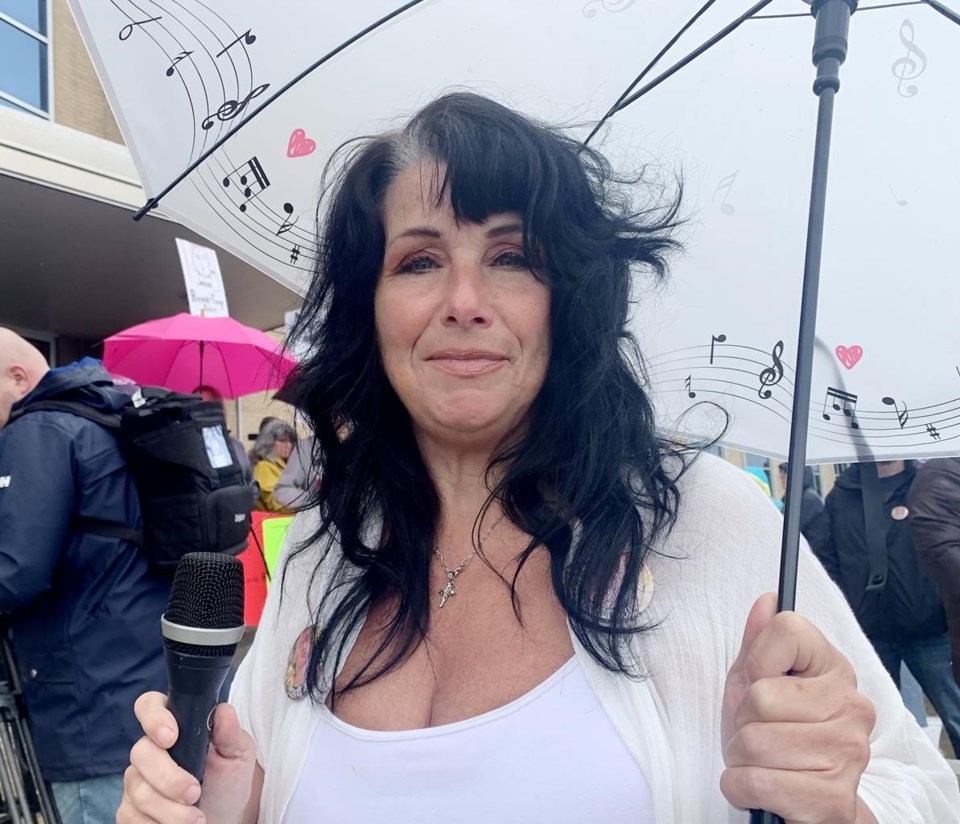ST. JOHN'S, N.L. — Newfoundland and Labrador's justice minister could do nothing but listen Wednesday as parents who had lost their children to drug addiction recounted their stories on the steps of the provincial legislature.
John Hogan was addressing a crowd of about 100 people gathered at the building to demand better supports for those suffering from addictions. Some held signs with the names and pictures of family members who had died of overdoses.
He said the community needs to "come together" and that police and first responders have a role to play. People in the crowd shouted back. They asked for concrete plans and solutions, they asked where Premier Andrew Furey was, and they asked to be heard.
St. John's is reeling from a spike in drug-related deaths. The Royal Newfoundland Constabulary issued a warning in late July about fentanyl in the local cocaine supply. The province's chief medical examiner then confirmed it had recorded 11 presumptive cocaine-related deaths between June 23 and July 23.
The seaside capital city has a population of just over 110,000 people.
Tina Olivero's son, Ben, died on July 29 in downtown St. John's of what she says was an overdose. She organized Wednesday's rally and told the crowd she was aware of 16 overdose deaths in the past month.
"There'll be another one out there today, and another one out there tomorrow," she said. "This is a disease and an illness that is taking the people that we love."
Olivero called for a better care network for those seeking help for addictions. They face a wait-list of at least six weeks to get a spot in a rehabilitation facility, and there is nowhere safe for them go when they leave, she said. She also decried the over-incarceration of people with mental illness.
She is asking the provincial government to make a "compassionate involuntary care law," as well as changes to provincial privacy laws that would give parents and family members of those with addictions more say in their treatment.
Involuntary care — or what some advocates call "forced treatment" — is controversial. The Pivot Legal Society, a Vancouver-based legal group advocating for marginalized communities and human rights, called it "criminalization by another name" in a report they released in March.
The report says the practice could arguably constitute a violation of Charter rights. The legal society says involuntary care ignores key social issues that can lead to and exacerbate addictions and mental health issues, including housing insecurity, poverty and inadequate voluntary treatment options.
This report by The Canadian Press was first published Aug. 23, 2023.
Sarah Smellie, The Canadian Press



